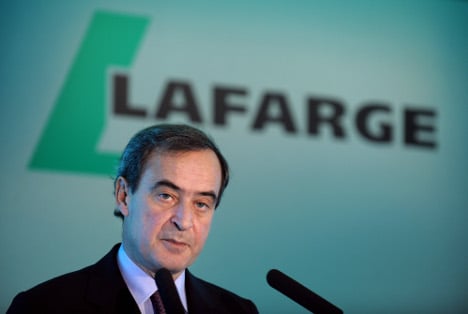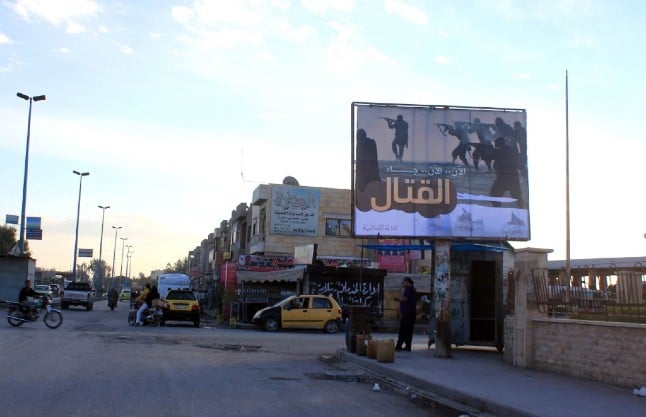Lafarge is accused of paying the terrorist group and other militants $12.9 million between 2011 and 2015 so that the company's factory in Jalabiya, northern Syria, could continue to operate despite the war.
According to a report commissioned by LafargeHolcim and seen by AFP, Lafarge's Syrian subsidiary Lafarge Cement Syria (LCS) paid out some $5.6 million (€4.7 million) between July 2012 and September 2014.
Of this, more than half a million dollars went to IS, according to an April report by US consultants Baker McKenzie.
Last week, Bruno Lafont — chief executive from 2007 to 2015 when the company merged with the Swiss building supplies company Holcim, before serving as co-chairman of LafargeHolcim until April this year — was charged with “financing a terrorist organisation and “endangering the lives of others”.
The group's former Syria chief Christian Herrault and Eric Olsen, who took over from Lafont as CEO after the company merged with Switzerland's Holcim, were also charged with the same crimes.
Investigators contend that Lafont was aware of the millions of dollars being paid to various armed groups including IS.
The three men have been in detention since December 6th.
According to the source, Lafont told judges in a hearing that Herrault announced “an agreement with Daesh (IS)” during a board meeting in August 2014.
“I did not comment at the time, except to say that the deal was not a good idea,” Lafont said, adding that he then decided to close the plant.
It would eventually fall into the hands of the Abu Bakr al-Baghdadi group a few weeks later, on September 19th, 2014.
'Regularly informed'
Herrault acknowledged earlier this year that Lafarge was involved in a “racket”, but that he kept Lafont “regularly informed”, according to the commissioned report.
Herrault apparently told Lafont about what was going on in Syria beginning in summer 2012 and of the jihadist payments in September-October 2013.
Herrault told judges he paid IS “the sum of 5 million Syrian pounds ($20,000) monthly from November 2013,” because “all the stakeholders have to make sure that this investment lasts and works”.
“There are many things I did not know and that may have been hidden from me,” Lafont told the judges.
The former CEO denied having wanted to stay in Syria at all costs only for a “commercial” reason, seeing as the group had spent $680 million on its Jalabiya factory a few years earlier.
“Obviously an asset of that amount is taken into account but it is not the only thing taken into account,” Lafont said. “A cement factory is very difficult to dismantle (and) our custom is to not let people down”.
Lafont told judges he realised in July 2013 that the situation in Syria had worsened and that the company needed an exit strategy.
“Mr. Lafont never expressed doubts or any intention of closing the factory to Mr. Herrault from that date and until August 2014,” Herrault's lawyer Solange Doumic said.
Lafont's lawyer was unavailable for comment.
Lafarge hung on for another 14 months, after most French companies had left as IS made major territorial gains.
Three former officials at the Jalabiya factory were also charged in the case last week.



 Please whitelist us to continue reading.
Please whitelist us to continue reading.